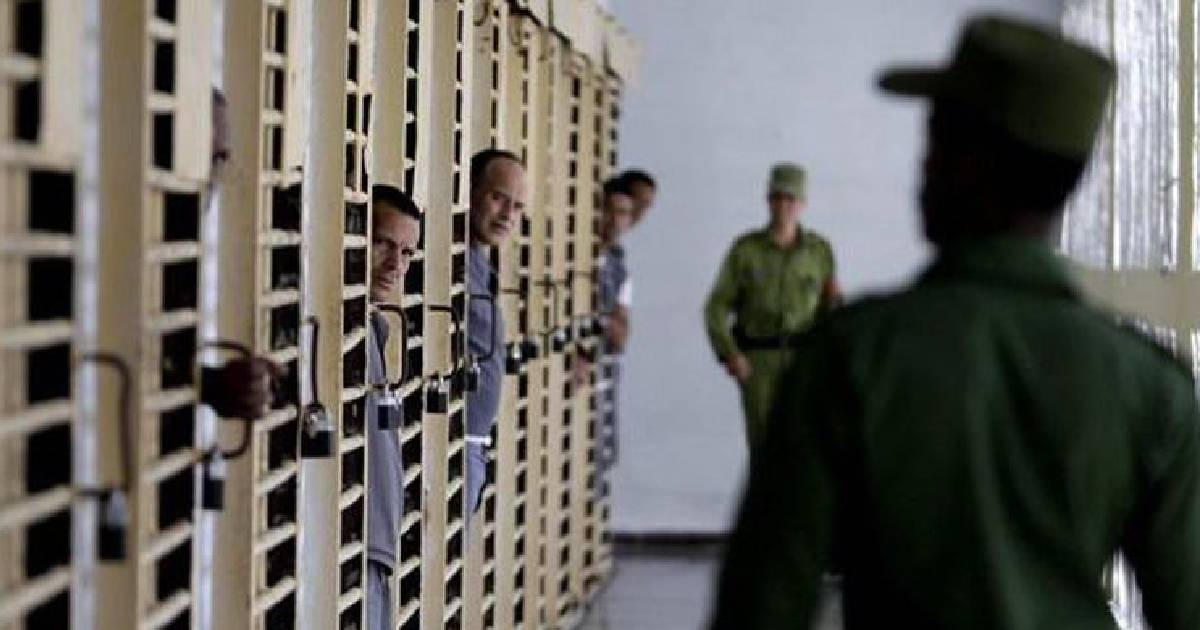More than 70 foreign inmates at La Condesa prison in Mayabeque have been on a hunger strike since June 4th, protesting poor treatment and frequent power outages. In a public letter cited by independent portal 14 y Medio, the inmates, mostly Venezuelans, reported abuse, inadequate food, and the denial of parole benefits despite meeting the conditions for conditional release.
In their letter addressed to activists, organizations, and independent journalists, these prisoners call for international intervention to address their situation. They highlight difficulties in accessing water, electricity, and proper medical care. Notably, they criticize the prison's food for lacking nutritional value. "A significant number of us foreign prisoners have disappeared during the early hours, and each day more go missing without a trace," the inmates explained. A total of 74 Venezuelans, serving sentences for various crimes, are part of the hunger strike group, according to the source.
The prisoners question why they are not allowed to be transferred to their home countries to serve their sentences in more dignified conditions, given the island's food shortages and poor prison conditions. The signatories claim they are constantly repressed and threatened, with many prisoners disappearing in the early hours and others being punished in notoriously cruel cells known as "47".
Among the strikers is Fabio, a nearly 35-year-old Venezuelan sentenced to 15 years for drug-related offenses. His mother, María, told 14 y Medio that Fabio has been imprisoned for seven years and is denied parole, which he is eligible for after serving half his sentence, because he has stood up for his rights. According to María, Fabio's father, imprisoned with him for the same crime, died in prison due to lack of medical care.
This is not the first time inmates at La Condesa have rebelled to demand their rights, notes the independent newspaper. Three years ago, two prisoners, Colombian Wilson Marín Castellanos and another named Arturo Sánchez, went on a hunger and thirst strike demanding extradition and better prison conditions. In December 2022, Bulgarian citizen Andrian Georgiev protested similarly. Earlier that same year, a Jamaican prisoner committed suicide in his cell, with inmates reporting strange behavior from officers following the tragedy.
On that occasion, CiberCuba reported that breakfast in the prison consisted of a piece of bread and a spoonful of scrambled eggs in a glass of sweetened water. Lunch included 30 grams of chicken, six centimeters of plantain, about 60 grams of rice, 200 milliliters of soup, two spoonfuls of liquid jam, and a child's fist-sized piece of bread.
In 2022, Radu Martin, a Canadian prisoner at La Condesa, described the lack of food, medicine, and frequent power cuts of four to five hours a day. The situation with water supply and quality also remains problematic, affecting the hygiene of the prison and its foreign inmates. According to Martin, "17 people in a dormitory had to wait in line for three showers and three toilets, which need to be flushed with buckets."
Key Issues in La Condesa Prison
In light of the ongoing hunger strike at La Condesa prison, several critical questions arise regarding the treatment of inmates and the conditions within the facility. Here are some frequently asked questions and their answers to provide more insight into the situation.
Why are the prisoners at La Condesa on a hunger strike?
The prisoners are protesting poor treatment, inadequate food, power outages, and the denial of parole benefits despite meeting the conditions for conditional release.
Which nationalities are most represented among the hunger strikers?
The majority of the hunger strikers are Venezuelan, with a total of 74 Venezuelans participating in the protest.
What are the prisoners' demands?
The prisoners are demanding international intervention, better access to water, electricity, medical care, and the possibility of being transferred to their home countries to serve their sentences under more dignified conditions.
Have there been previous protests at La Condesa?
Yes, there have been several previous protests, including hunger strikes and other forms of rebellion, to demand better conditions and rights for the prisoners.
